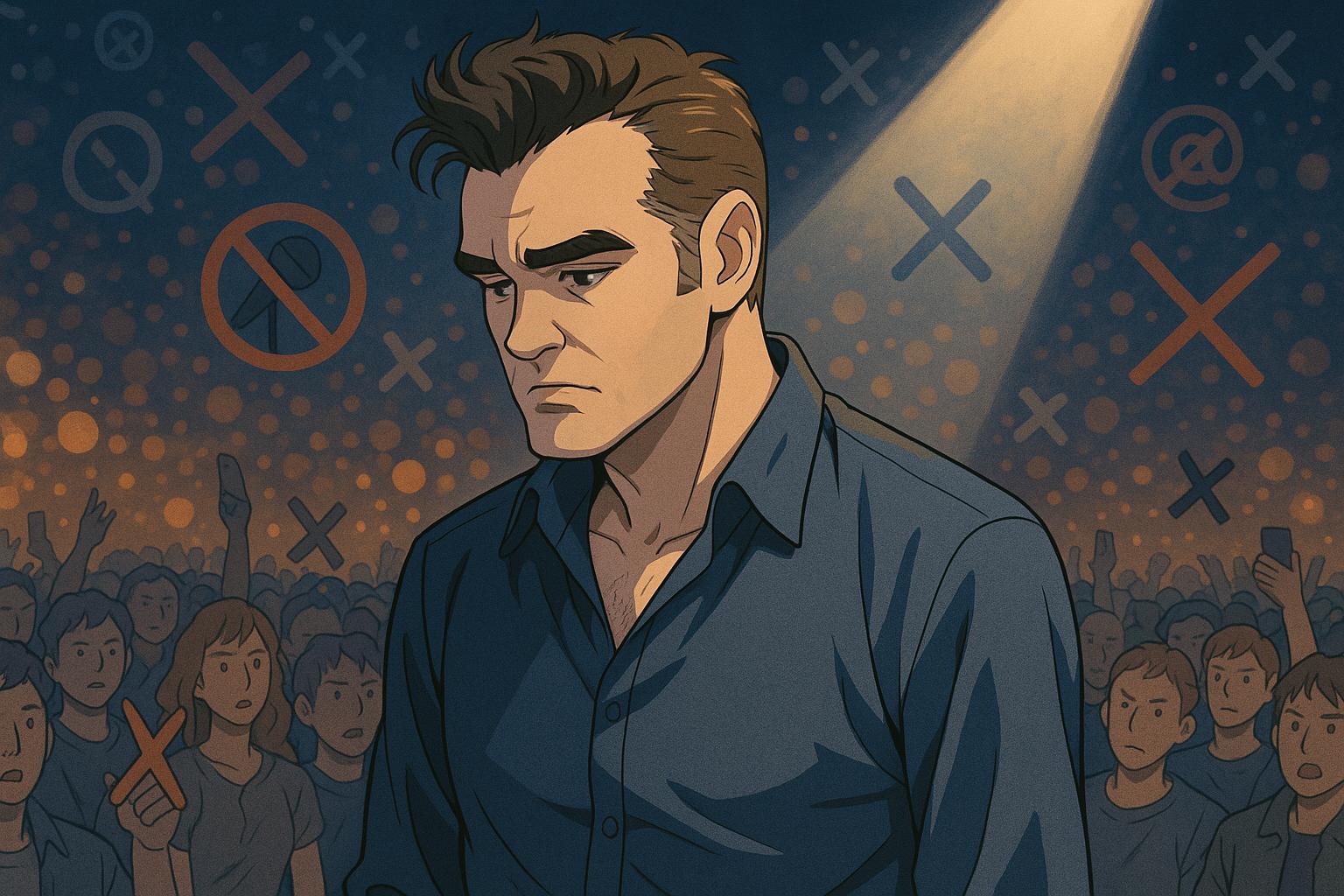The anticipation surrounding Morrissey's return to the UK and Ireland after nearly two decades was palpable, particularly with his eagerly awaited performance in Dublin. However, the excitement was somewhat dampened by remarks from friends and colleagues who swiftly categorized him as "cancelled." This sentiment highlights a pervasive narrative in contemporary discourse: the phenomenon of cancel culture, which often polarises public opinion and influences the reception of artists and their work.
Morrissey, a figure synonymous with controversy, has long positioned himself as a staunch advocate for free speech. In recent statements, he claimed that expressing one's opinion in the UK has become fraught with peril, suggesting that artists face potential repercussions merely for voicing dissenting views. His assertion—that free speech is being criminalised—was framed as an explanation for the apparent withdrawal of record labels from supporting his music. He lamented that the industry has become "quite bloodless," where artists can be swiftly discarded for viewpoints that conflict with mainstream norms. This sentiment resonates with broader concerns regarding the implications of conformity under the modern guise of diversity.
The duality of his public persona—both beloved musician and controversial figure—raises essential questions about moral outrage versus artistic expression. While some detractors hold fast to the notion that Morrissey's views warrant widespread condemnation, he has successfully navigated numerous accusations, including racism, which he denies unequivocally. Despite the backlash, it is crucial to differentiate between deeply offensive behaviours that warrant societal condemnation and the expression of unpopular opinions that simply stir discomfort.
Even as Morrissey faces scrutiny, he remains unfazed; his music continues to resonate with fans who appreciate his distinctive style and lyrical depth. Attendees preparing for his performances often indicate a willingness to access his artistic offerings irrespective of his controversial statements. One must consider whether society's eagerness to "cancel" figures based on their opinions might ultimately stifle the kind of rich debate that art can provoke. The immediacy of this cultural response can sometimes cloud the lines between accountability for harmful actions and the right to express unpopular or challenging ideas.
Reflecting on Morrissey's views—from his ardent vegetarianism to his critiques of political correctness—one encounters a complex tapestry of personal beliefs that can be polarising. Nonetheless, rather than dismissing him outright, many fans choose to focus on his artistic contributions, which include clever wordplay and evocative themes of loneliness and yearning. Morrissey's continued success in particular markets, such as the US and Canada, demonstrates that despite the attempts at silencing him, there remains a considerable audience willing to overlook or compartmentalise his controversial opinions.
As the discourse around cancel culture evolves, it raises critical considerations: have we indeed over-corrected? The extent to which extreme reactions to certain behaviours and remarks might swing back, a phenomenon that may gain traction through parallel figures such as Donald Trump, provokes further inquiry into the dual standards we apply to various public figures.
In the end, Morrissey’s concert in Dublin stands not solely as an artistic event but as a reflection of the broader cultural battle over free expression, with audiences prompted to confront the paradox of loving an artist while grappling with the contorted nature of their public persona. The distinction must remain firm: just because one is offended does not necessarily equate to being right.
As Morrissey prepares to take the stage, the anticipation for his setlist—filled with classic hits—remains unclouded by the controversies that surround him, reaffirming that, for many fans, the music transcends the man.
Reference Map:
- Paragraph 1 – [1], [2]
- Paragraph 2 – [2], [3]
- Paragraph 3 – [1], [4]
- Paragraph 4 – [5], [6]
- Paragraph 5 – [1], [7]
Source: Noah Wire Services
